Were you aware that unmarried couples are not allowed to share a hotel room in Morocco? This is indeed the case, although it is a law that is very rarely enforced. However, one group of people may find themselves affected by this ban.
In principle, Morocco is among the more liberal of the Islamic nations. Nevertheless, when it comes to extramarital relations, the legal situation is clear. Sexual contact between unmarried people is prohibited, under Article 490 of the Moroccan penal code. And as such, it is technically illegal for unmarried couples to share a hotel room. Whilst this is a ban that is usually not enforced, there are some exceptions to the more generalised leniency.
Contents
Sharing of hotel rooms by unmarried non-Moroccans couples
Strictly speaking, the ban on the sharing of hotel rooms by unmarried couples applies to foreigners as well as Moroccans themselves. However, I am not aware of any instance in which a foreign tourist has been asked to produce their wedding certificate. I myself have visited Morocco more than 20 times. Either as part of a couple or with several other people, staying in countless riads, hotels, mountain huts, desert bivouacs or apartments. I have never once been questioned about my marital status.
For the past few decades, unmarried couple without Moroccan citizenship have routinely shared hotel rooms or rented apartments without any issues. So, you can safely dispense with any talk of phantom marriages or stunt wedding rings. Nobody will quiz you about your marital status during your holiday.
Sharing of hotel rooms by unmarried, binational couples
However, if you are unmarried and intend to share your hotel room with a Moroccan citizen, the situation is slightly different. Landlords or hoteliers who allow unmarried couples to share a room are in breach of the law. Consequently, binational couples without a wedding certificate will struggle to rent a room anywhere in Morocco. Naturally, this also applies to other unmarried Muslim couples.
I don’t know of any hotels that will accommodate unmarried binational couples on an official basis. The best approach is probably to enquire in advance. You will be wasting your time to ask at Moroccan hotels or riads but may have more luck at one of the large international hotel chains.
Private rentals can also prove somewhat difficult. Morocco’s reporting laws were tightened up in the wake of counter-terrorism legislation several years ago. Since then, landlords are obliged to report all tenants to the security authorities. This regulation, which previously applied only to hotels, is now also applicable to apartments, houses and flats. As a result, many landlords will expect to see a binational couple’s marriage licence before handing over the keys. A wedding ring is adequate proof in such situations, although occasionally, the offer of an additional payment may carry some weight.
Tips
When it comes to unmarried binational couples travelling in Morocco, any public displays of affection should be avoided. The Tourism Police are particularly conscious of fake guides, bezness and other scams targeting tourists. The physical restraint required should not feel unusual. Public displays of affection have little place in Moroccan society generally. But you can walk around freely with your partner without any concerns.
- If you are a married binational couple, ensure you have a copy of your marriage certificate with you.
- If you or your partner has two passports, always present the European one first.
- Look for private apartments that are rented by non-Moroccans.
- Riskier: search for private apartments and rent them through non-Moroccans.
- Recommended: search for hotels or apartments owned by non-Moroccans and request a booking in advance.
- If all else fails: opt for the so-called two-room method and rent single rooms, then scurry across the corridor after dark.
Sharing of hotel rooms by gay or LGBT couples
Although Morocco is a comparatively liberal Muslim country, large segments of the population remain deeply conservative. Consequently, lesbian, gay, bisexual, transgender and intersex tourists are unable to expect the same tolerance they will be accustomed to in large European cities. Same-sex relationships are also against the law in Morocco. However, this is only one side of the coin.
The flipside is that hardly anyone notices anyway. In Morocco, any open displays of affection are generally discouraged. Unmarried homosexual couples who refrain from demonstrating their affection in public should have no more difficulties than heterosexual couples. That is, of course, assuming neither of them is a Moroccan citizen. In Marrakech, there are also a number of gay-friendly riads.
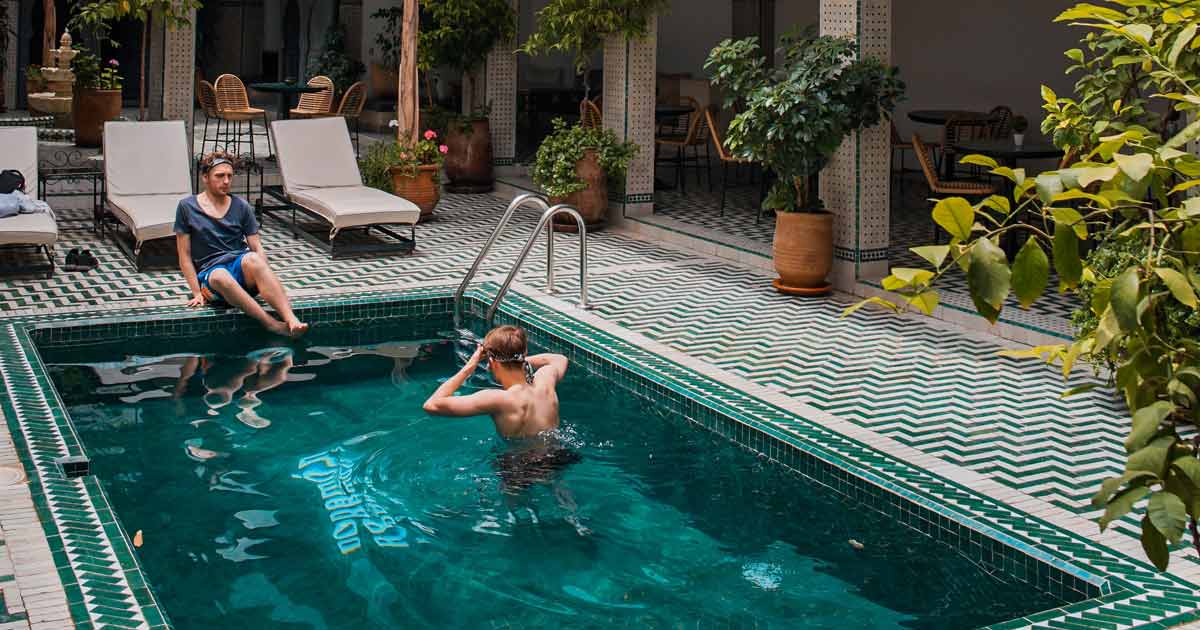
The bottom line
For some Europeans, the rules pertaining to unmarried couples in Morocco may seem concerning, but most tourists will find that they are completely unaffected by the laws. If you and your partner are unmarried, don’t worry about it: no-one in Morocco is likely to ask you anyway.
The situation for binational couples – particularly where one is a Moroccan citizen – is admittedly more complex. In such instances, making enquires in advance, offering additional payments or adopting the two room approach may prove necessary.

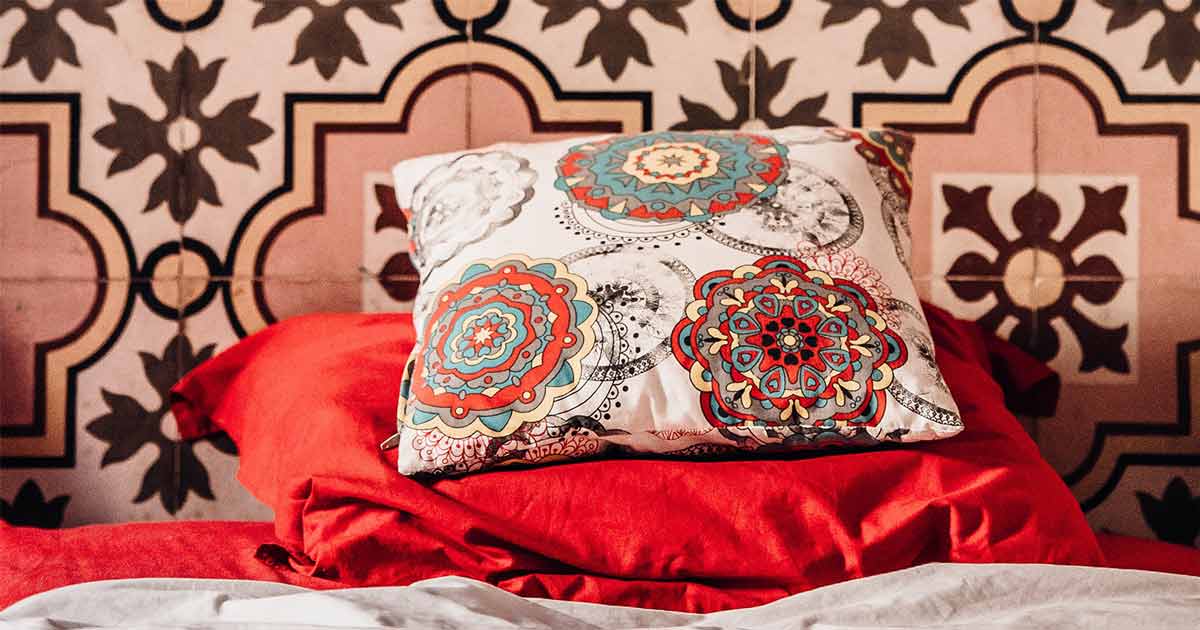

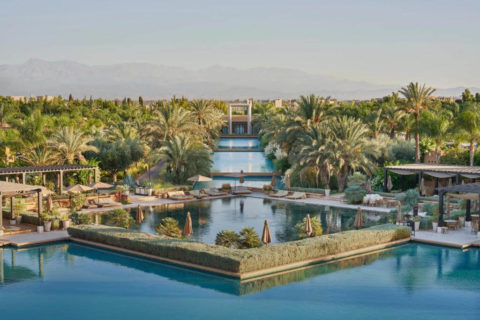
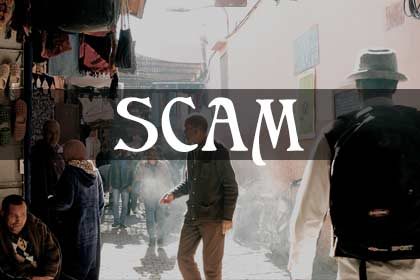
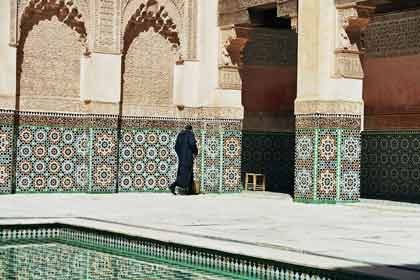
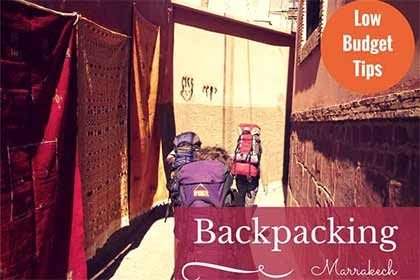
It is a great blog post.I am always read your blog helpful and informative tips. I like it thanks for sharing this information with us
Great blog post.Helpful and informative tips. I like it thanks for sharing this information with us
I’m planning to meet with my South American girlfriend in Morocco but I don’t know if they will allow us share a room as we both foreigners.
Hi,
I guess that if you are not Moroccan, this should be no problem. I met many binational couples sharing their rooms. Have a good trip!
Hi,
I am a non-muslim with a British passport will be travelling there with my partner who has a Muslim name (non-Moroccan passport), we will be coming from UK. Will we be allowed to stay together?
I guess that you should not have any problems without Morrocan passports.
what does binational mean? does it have anything to do with interracial couples?
Hi Kim,
Thanks for your comment. “Binational” means in this context that both have a different nationality. The difficulties usually only arise when one of the two has Moroccan citizenship.
But isn’t offering an additional “payment” in itself illegal?
I just wanted to share my negative experience of planning my holiday in Marrakech. Having a friend who is not a Marroquin resident and national but who could help me get around, doing prior research on the internet, contacting an owner of that property, asking him if there were any problems associated with sharing an apartment by two people of different gender and nationality and getting a positive reply, I proceeded with the booking. A month before my departure I decided to make final enquiries with the owner and received a negative reply. After asking me if we were a married couple, he insisted on canceling my booking. He even refused to provide me with rental facilities in case I’m going to stay on my own. I have no return money and my flight tickets are not refundable.